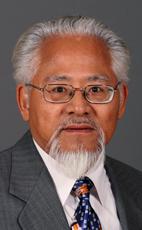Mr. Speaker, I will be sharing my time with the member for Edmonton—Strathcona.
I, like other members, congratulate you on your appointment to the Chair. On behalf of the constituents of Dauphin—Swan River I wish you a very successful term.
I am honoured and privileged to be in the House of Commons representing the people of Dauphin—Swan River. I thank the people of Dauphin—Swan River for the honour. I pledge to them that as I take my seat on their behalf it is my responsibility to be accountable to them first and foremost.
I would like to describe to the House the make-up of Dauphin—Swan River. It is as unique as the country itself. Dauphin—Swan River is located in west central Manitoba, the second largest settled area riding. It is a land of lakes, mountains and prairies. It is multilingual and multicultural. The people speak English, French, Ukrainian and Saulteaux. Culturally it is predominantly English, Ukrainian, French and aboriginal. The people of Dauphin—Swan River celebrate this diversity with enthusiasm throughout the year. We are all proud of our ethnic heritage but we are prouder to be Canadians first.
On a more personal note, I am a third generation Canadian. My Chinese grandfather came to Canada to help build the railway in the late 1800s. My wife Lynda, nee Burelle, is ninth generation. Her roots go back to 1660, to the arrival in Quebec of Étienne Burelle and Marie Tellier from the parish of Saint-Séverin in Paris. They settled near Varennes, in Quebec. The Quebec Burelles moved west to Manitoba only in the 1900s. We both still have relatives in Quebec.
I am sure that many Canadians are in the same position. Quebec is as important to us as any other province in which we have family members.
The people of Dauphin—Swan River sent me to the House to make sure their concerns are heard. They are not happy about the lack of jobs, the rising cost of post-secondary education, the dismantling of the health care system, the price of grain as announced recently by the Canadian Wheat Board, the cost of transporting farm products to market, the political manipulation of the grain transportation system over the last 40 years, an ineffective Young Offenders Act, and the lack of justice in that criminals appear to have more rights than law-abiding citizens.
In Dauphin—Swan River the issue of gun control implemented by the former justice minister is unacceptable to the people. This bill has been very divisive for Canada. It has put Canadians in two camps, those living in large urban centres and those living in rural settings. The gun control of the government will no doubt make criminals out of millions of otherwise law-abiding Canadians across the land.
As the deputy critic for national unity my role is to ensure that the grassroots at the municipal level are listened to and that they have a pivotal role to play in the future of Canada. I believe that we have failed over the last 40 years in the unity debate because we have used the wrong process.
Canada's vision was seen through the eyes of the Right Hon. Pierre Trudeau in the 1970s. In the 1980s the vision was through the eyes of the Right Hon. Brian Mulroney. In the 1990s there has been a struggle between the old school and the new school. The old school wants to stick with a closed door, top down approach to solving Canada's challenges and problems on unity and on most other issues as well. The new school wants to throw open the windows and let in the fresh air, open the doors and let the people bring their ideas to the table and have a real part in making the decisions. Sadly the old school is so far barely letting the windows and doors crack open.
I believe that the next millennium belongs to the people of Canada, without a doubt. During the last forty years, the politicians have failed miserably with their top-down approach to unifying the country. Now is it the citizens' turn to address the issues of the day.
In my opinion, Canadians are interested in their day to day needs—jobs, health care, housing—and not in constitutional disputes between parties and governments. My constituents have indicated to me that we must start by solving problems, and must treat all citizens of this marvellous country on an equal footing.
In past weeks I wrote to the provincial premiers suggesting the process of consultation be open and transcend political loyalties and partisan politics. I also asked the premiers to encourage the municipal leaders to participate in holding town hall style meetings in each community open to the residents. The community meetings would be assisted by facilitators, information provided by provincial governments, input from experts and include the participation of local MLAs and MPPs. In short it would put the town back in the unity town halls.
In closing, the key to this process is open discussion. Only then would the people of Canada have an opportunity to discuss and debate the issues on the future of their country. The House belongs to the people as so does the future of the country.

